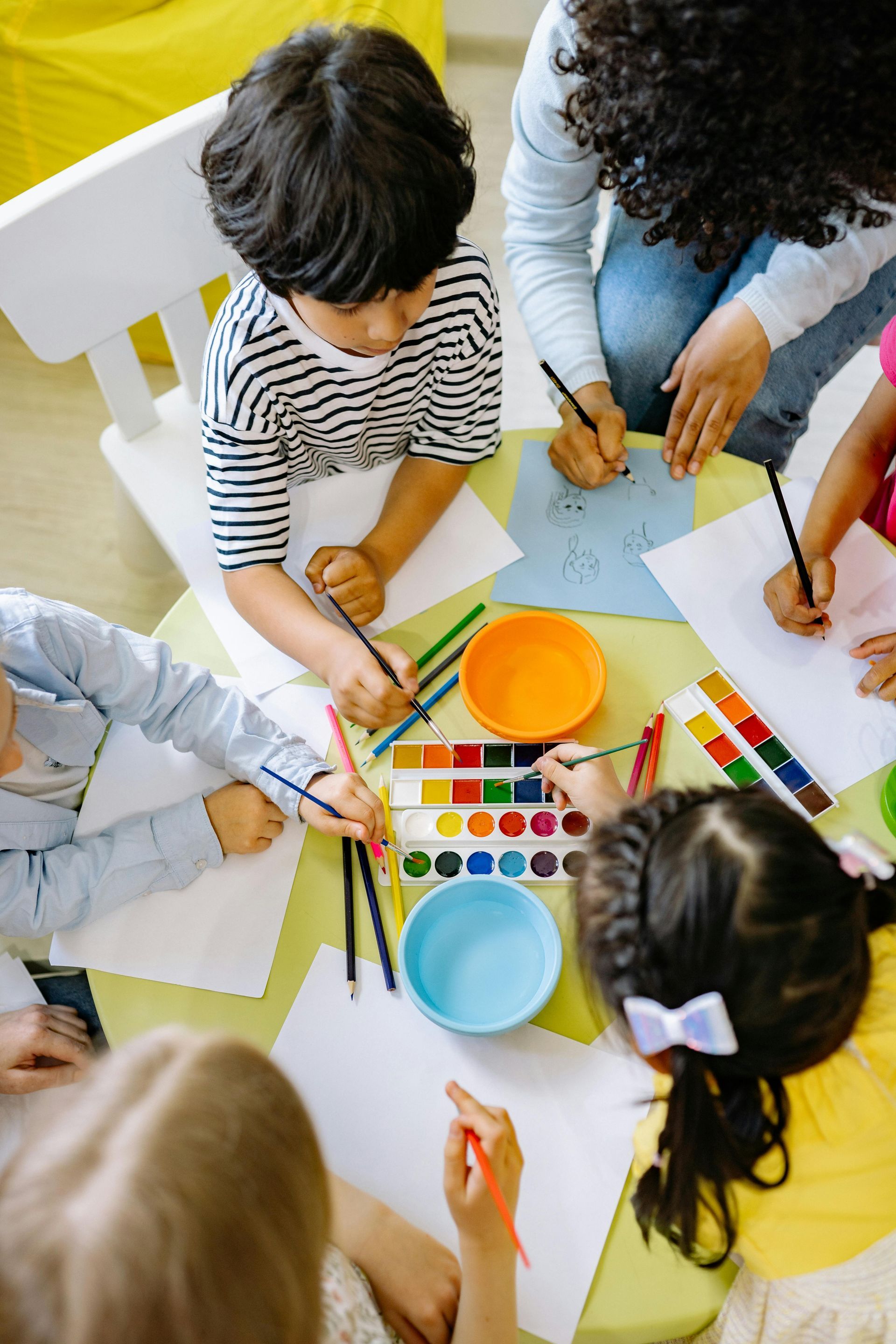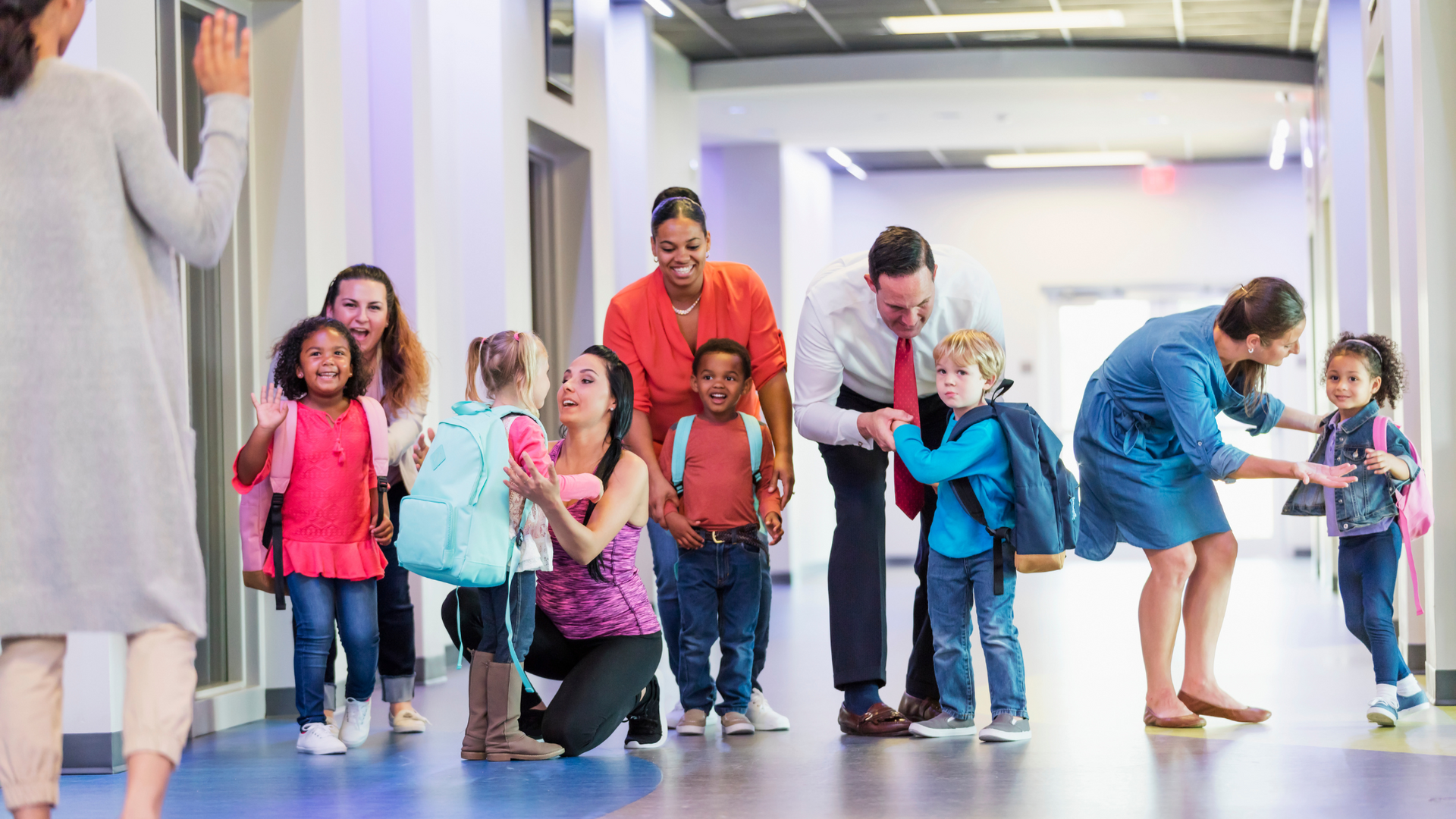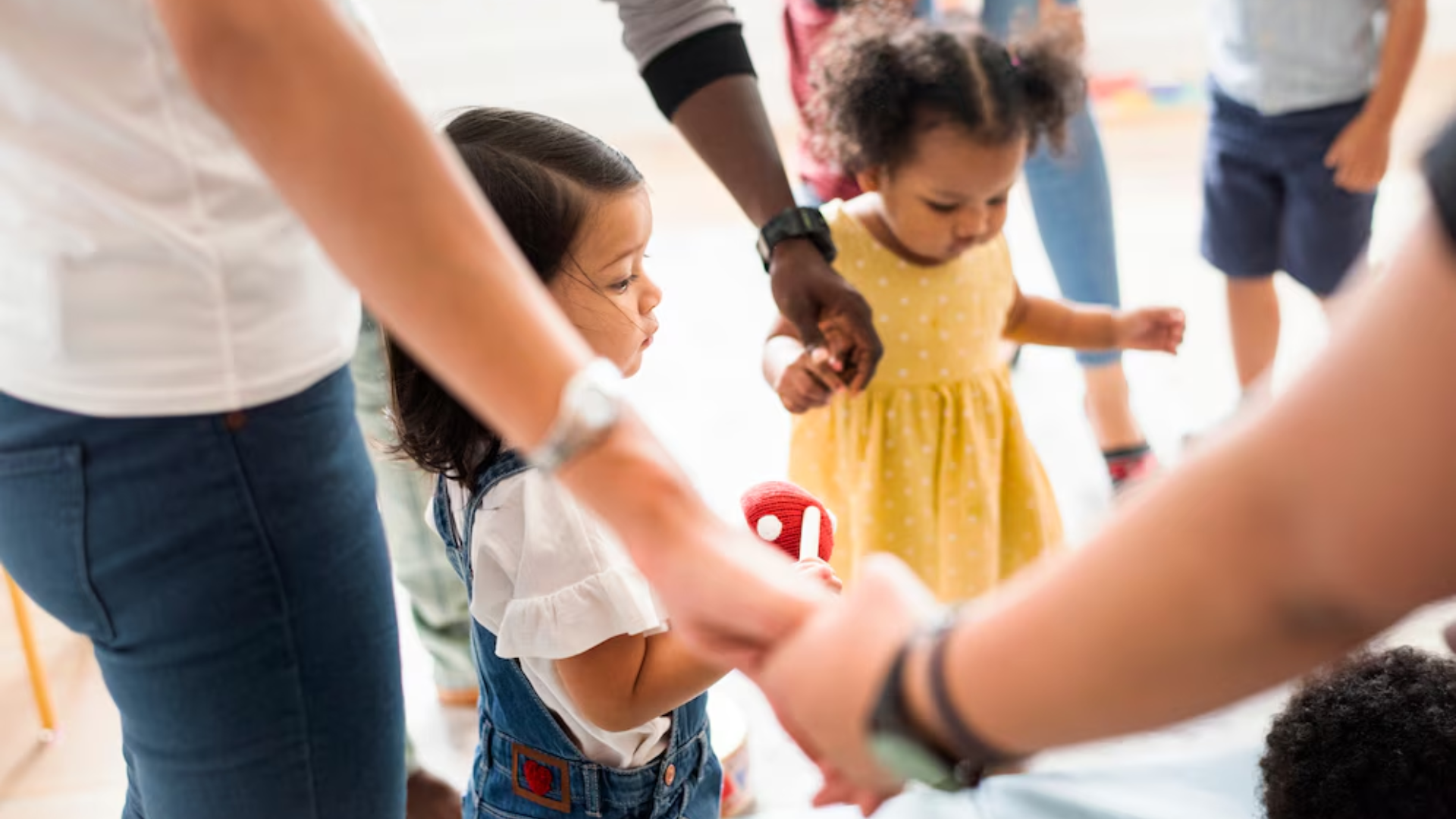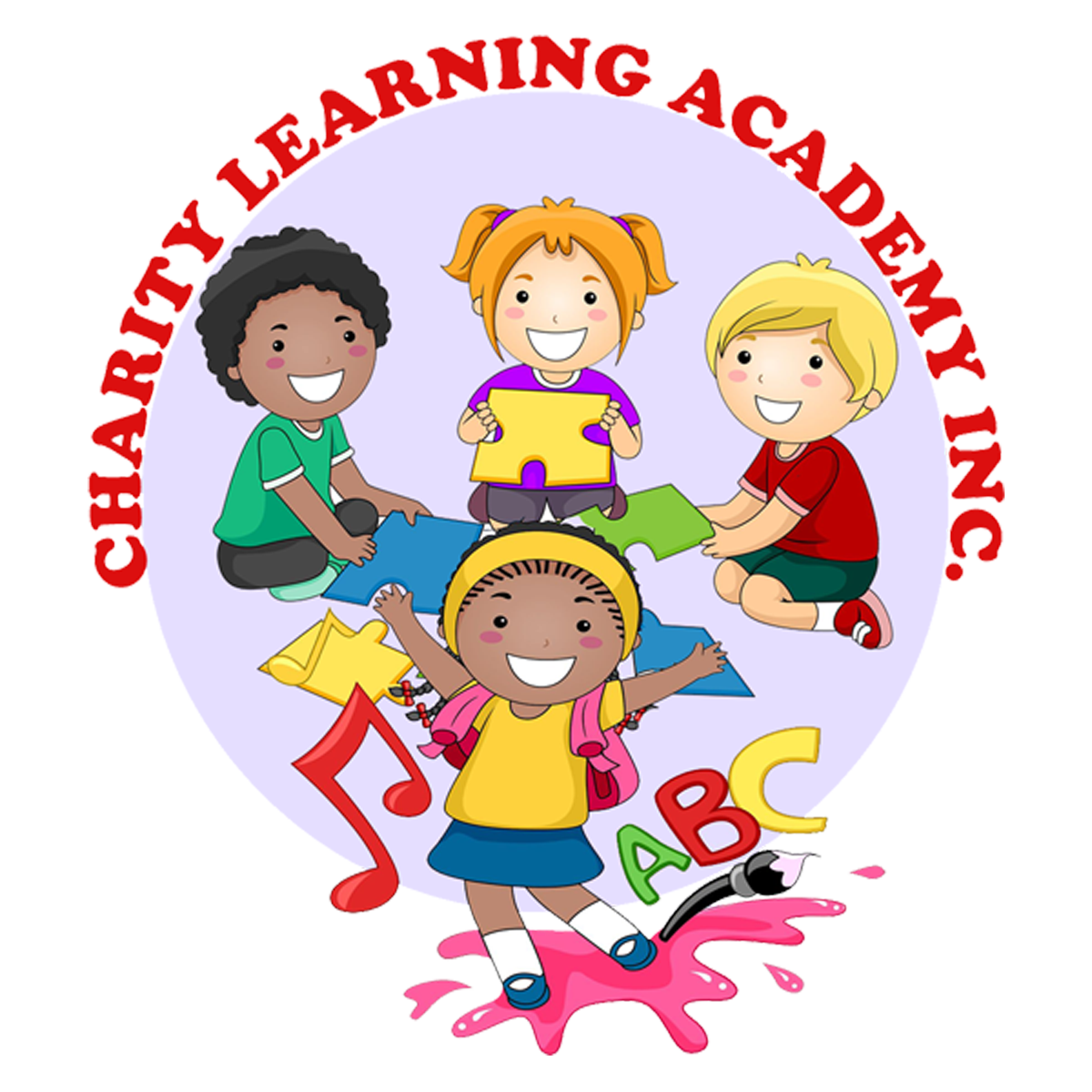Why Our Curriculum Focuses on Nurturing Every Child’s Potential

Every child enters the world with a unique blend of talents, curiosities, challenges, and dreams. At the heart of early childhood education is the belief that each child deserves the chance to explore their full potential in a safe, supportive, and inspiring environment. That is why our curriculum is built not only on academic readiness but also on nurturing the whole child intellectually, socially, emotionally, and physically.
Children are not one-size-fits-all learners. Some thrive in structured settings, while others shine through creative play. Some love books and language, while others express themselves through movement and art. A high-quality curriculum should do more than prepare children for the next grade. It should help them discover who they are, what excites them, and how to build the skills that will carry them through a lifetime of learning and growth.
Let us take a closer look at why our approach to curriculum development is rooted in nurturing each child’s individual potential and how that focus leads to deeper learning, greater confidence, and stronger foundations for future success.
A Whole-Child Approach to Early Learning
Our curriculum begins with a simple philosophy, children learn best when their hearts, minds, and bodies are all engaged. That means we focus not only on cognitive development but also on emotional wellbeing, social connection, and physical growth.
Children who feel seen, valued, and encouraged are more likely to take risks, ask questions, and explore new challenges. That is why our daily activities and lesson plans are designed to foster both academic and personal growth. Whether it is a literacy game that builds confidence in communication or a group project that encourages teamwork, each part of our curriculum is intentional.
We look at the whole child — not just how well they count or read, but how they problem-solve, express feelings, make friends, and engage with the world around them.
Emphasizing Individual Strengths and Interests
One of the most powerful ways to nurture a child’s potential is to tap into what makes them unique. Our educators take the time to get to know each child, learning about their interests, preferred learning styles, and emerging abilities. Then, we use that knowledge to create opportunities that speak to their strengths while gently encouraging them to stretch into new areas.
For example, a child who loves building with blocks may be introduced to early math concepts through counting and measuring structures. A child who enjoys storytelling may be guided into writing simple books or acting out their ideas in dramatic play. By meeting children where they are and celebrating their individual gifts, we create a sense of ownership and excitement in their learning journey.
This kind of personalized attention is key to unlocking potential. It empowers children to feel capable and to believe that their ideas and efforts matter.
Integrating Play and Exploration
Play is not just a break from learning, it is how young children make sense of the world. That is why play is a central part of our curriculum. Through guided and open-ended play, children build critical thinking skills, practice decision-making, and develop independence.
Our classrooms are full of materials that invite exploration, from sensory bins and art stations to science tools and dramatic play areas. Teachers introduce new concepts through playful experiences that spark curiosity and creativity. Children might investigate how shadows work by creating puppet shows, or explore nature through outdoor scavenger hunts.
By integrating play with purposeful learning, we keep children engaged and inspired. They learn without even realizing they are learning which leads to deeper understanding and long-term retention.
Fostering Social and Emotional Development
A child’s ability to manage emotions, form relationships, and navigate social situations is just as important as academic skills. In fact, social-emotional development lays the foundation for lifelong learning and success.
Our curriculum includes daily routines and intentional activities that help children build these essential skills. From group discussions to cooperative games, we encourage children to practice empathy, kindness, patience, and self regulation.
Children learn how to express their feelings in healthy ways, listen to others, resolve conflicts, and take responsibility for their actions. We use role-playing, storytelling, and reflection exercises to help children understand their emotions and build positive relationships.
When children feel emotionally safe and socially connected, they are more likely to thrive in all areas of learning.
Encouraging Language and Communication Skills
Strong communication skills are the key to expressing ideas, asking for help, solving problems, and building relationships. That is why we emphasize rich language experiences throughout our curriculum.
Children are immersed in a language rich environment where they hear and use words all day long. Storytime, songs, open-ended questions, conversation circles, and creative storytelling are just some of the ways we build vocabulary and expressive language.
We also focus on active listening and turn taking, which are vital parts of communication. Whether a child is learning to form simple sentences or engaging in a classroom debate, we meet them at their level and support their growth with patience and encouragement.
Building Early Academic Foundations
While our curriculum emphasizes the whole child, we also provide strong academic foundations in literacy, math, science, and problem-solving. These skills are introduced in developmentally appropriate ways, using hands-on materials, real-world connections, and interactive learning.
We do not push children to memorize or drill. Instead, we create meaningful contexts for learning. For example, math might be explored through cooking, measuring ingredients, and discussing patterns in nature. Literacy might be nurtured through writing letters to friends, labeling classroom items, or creating personal books.
The goal is not just to teach facts but to build a love for learning and the confidence to tackle new challenges.
Supporting Family Partnerships
A child’s potential is best nurtured through a strong partnership between school and home. We believe that families are a child’s first and most important teachers. That is why we work closely with parents and caregivers to ensure consistency and collaboration.
From regular updates and parent conferences to take home activities and community events, we keep families engaged in their child’s progress and invite them into the learning process. When educators and families work together, children receive a unified message that their growth and success are valued and supported.
Creating an Environment That Inspires Growth
Finally, the physical and emotional environment plays a big role in how children learn. Our classrooms are warm, inviting, and thoughtfully arranged to encourage curiosity, collaboration, and comfort.
Each space is filled with natural light, calming colors, and age-appropriate materials that children can explore independently. Children feel a sense of ownership over their learning environment, which boosts confidence and initiative.
We also create routines and expectations that promote security and predictability. When children know what to expect and feel safe in their surroundings, they are free to explore and engage fully.
To support children's growth beyond the school day, our post on how enriching activities benefit preschoolers beyond the classroom pairs well with insights from how our before and after school programs keep kids engaged, offering a full picture of meaningful engagement throughout their daily routine.
Conclusion
Nurturing every child’s potential is not just a part of our curriculum, it is the heart of everything we do. We believe that every child has something valuable to offer, and it is our job as educators to help them discover it, develop it, and share it with the world.
By focusing on the whole child and offering individualized support, engaging activities, social-emotional learning, academic exploration, and strong family partnerships, we create a powerful learning experience that honors each child’s unique path.
If you are looking for a preschool or early learning program that sees and supports your child for who they truly are, we invite you to learn more about our approach. Together, we can build the foundation for a joyful, confident, and successful learner one who knows that their potential is limitless.










